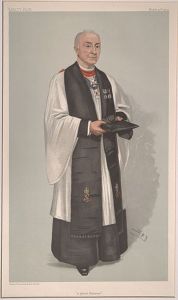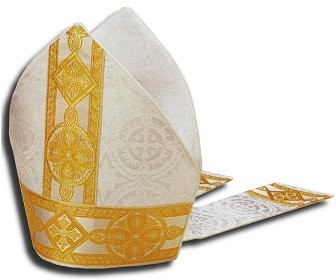

As readers of my blog, will know, I have taken a special interest in the case of Jonathan Fletcher, the former Vicar of Emmanuel Wimbledon. His importance as a mentor and guru to an entire generation of Christian evangelical leaders cannot be overstated. My interest in him has been primarily in understanding this influence and how his ‘fall’ has impacted on the evangelical constituency. I have never concerned myself in learning the detail of the bizarre tales of massages and ‘forfeits’ with young men. These have been rehearsed on the pages of parts of the British national press and form the background of an ongoing review by thirtyone:eight. Rather I have been interested to observe the sustained attempts at cover-up and secrecy by many within his constituency in the Anglican Church. This has been sustained for decades and is normally a matter of keeping completely silent. Fletcher’s story has also been linked with that of John Smyth, whose behaviour has also been extensively discussed. Their two stories overlap at several points, but I do not intend to discuss the latter character as it is now under scrutiny by Keith Makin’s enquiry.
My attempts to understand Fletcher and his circle, and the way they interact with the wider evangelical scene in Britain, has been made difficult in various ways. One problem has been in the fact that many online references to Fletcher were removed from the internet during the course of 2019. His online sermons disappeared and other references to his presence at conferences and meetings have also been purged. This apparent attempt to prevent the investigation of Fletcher by removing public evidence about him has stimulated the opposite effect in me. If you deny someone information, you just encourage them to look harder to find it. It is there to be found by the person with determination. An interview with Richard Coekin, a former curate who used to be attached to Emmanuel Wimbledon and was a close confederate of Fletcher is still available on a Youtube video. This video piece, made in 2019, is especially precious because it contains eight minutes of Coekin’s attempt to explain the Fletcher story to an audience of Sydney Anglicans. This attempt to interpret the saga by an individual who knew him very well and was formally listed as Fletcher’s curate for 18 years is possibly the only material of its kind.
Richard Coekin is an important figure among evangelicals in Britain. Unlike other senior Anglican evangelicals, he does not appear to have passed through the Iwerne route to leadership which has been the trajectory for, among others, the Fletcher brothers, William Taylor, Vaughan Roberts and Hugh Palmer. Coekin’s present role is to oversee the Co-Mission network of churches in Britain and he is also leader of Dundonald, a church plant founded from Fletcher’s church, Emmanuel Wimbledon. As a board member of AMiE, Coekin helps oversee Anglican churches planted outside the Church of England, but under William Taylor’s ReNew banner. Coekin’s network of churches sit lightly on denominational labels. Some are Anglican, while others regard themselves as independent. Coekin himself, although he ministers across denominational boundaries has retained the designation of being an Anglican. He retains a PTO from the Bishop of Southwark and from 1995-2013 served as a curate to Fletcher in Wimbledon, presumably with a full license. His main focus at that time was his church plant ministry but we have every reason to suppose his association with Fletcher was very close. He was a fellow member of the pressure group, Reform Southwark, and as well as a fellow council member of the national Reform organisation.
Anyone watching this video, https://www.youtube.com/watch?v=5Hv9WR-w95g&t=1914s would easily be charmed by Coekin’s self-presentation and his friendly demeanour. I can imagine that he is a powerful and effective leader as well as a compelling evangelist. No doubt the leaders of the churches in his network benefit greatly from his experience and gifts of leadership. But there were clues in the interview which hinted at some less than wholesome aspects of ministry. Certain things were also revealed through what was not said, as we shall see below. It is this probing behind the rhetoric that is important if we are to gain clues about the conservative Christian world that both Coekin and Fletcher inhabit.
The first 30 minutes of the Youtube interview tell us all about the issues of church life that Coekin was facing as a leader both of a congregation and a network of congregations. It was only in the last nine minutes that the interviewer turned to the topic of Jonathan Fletcher, a subject about which he, like many Sydney Anglicans, was finding perplexing. The answer that came from Coekin at no point revealed that Fletcher had been a previous co-worker with him. This somewhat detached way of speaking about Fletcher seemed to imply that Coekin wanted to preserve some distance from him, so as not to have to interpret the events that had emerged from the Press and elsewhere. The language he used was formal. While admitting there had been naked massages and inappropriate behaviour with young men, nothing of this behaviour seemingly had anything to do with the church circles that he moved in. The misbehaviour had taken place in the past and there was now need for repentance and a caring for the victims. Coekin said he did not know if there were ‘any more skeletons in the closet.’ Were people to know how close he was to Emmanuel and Fletcher that claim to ignorance might appear less credible. For example, one minister I spoke to says that Coekin told him that he was offered (and declined) a massage from Fletcher. Did he not think there was something amiss with that in the context of church ministry?
Coekin’s responses to the questions about Fletcher were curiously flat and unconvincing. The life seemed to go out of his voice compared with the vivacity of the first part of the interview. Everything that was admitted sounded like something from the Church of England publicity machine. There was seemingly some acceptance that victims found the beatings helpful – but then dismay. The reasons for that dismay are unclear. There was, I noticed, also no depth of pastoral insight or real understanding of the potential disastrous effect on victims. While words of deep regret towards victims were uttered, they felt formulaic and seemed to lack a sense of pastoral empathy. One particular moment of shock was when Coekin interjected the fact that there had been no underage young men being abused by Fletcher. This implied that Coekin believed that, theoretically, Fletcher could have been involved in nude massages and beatings which involved consent and were thus somehow less of a problem. Coekin moved on from these activities to what he called “the real problem” rather than yet another serious problem.
The problem as he presented it was subjectively whether victims “felt” manipulated. Quite apart from the apparent homoerotic nature of Fletcher’s activities, which are the target of strong condemnation by the entire conservative evangelical constituency, there is the power differential issue. Coekin partially acknowledged the power issue, but repeatedly minimised it by highlighting possible lack of consent and feeling manipulated as being the “real problem.”’ One would like him to have utterly condemned all activities initiated by a man of enormous status towards those who were impressionable and immature. Even to bring up the age of consent suggests he is not able to discern and recognise abuse of power or serious safeguarding breaches.
What did I learn from this interview about Jonathan Fletcher? My perception is that those who knew him, like Coekin, seem to be still at least partly under his thrall. While they have been forced to accept the facts of the case, they seem unable to process these facts and the implications of what a moral failure by a prominent leader will have on the credibility of the whole conservative evangelical movement in Britain. The way that Coekin changed in the interview from being a passionate advocate of his evangelism/leadership role to the formulaic responses, when talking about Fletcher, was striking. Somehow Fletcher’s influence seems to have flattened part of the moral and psychological sensitivity of an experienced Christian like Coekin. Having spoken passionately of the importance of preserving the biblical view of marriage, Coekin then appeared to be partly blind to the effect of the behaviour of a leader who clearly is a long way from upholding such values. It is worrying for the ReNew constituency that the interviewer, Dominic Steele, was unable to challenge Coekin’s blindspots, and yet he is due to speak at the upcoming ReNew conference on 14th September. This hardly gives confidence that the ReNew constituency are able to embrace the changes necessary to enable them to act as Jesus would towards victims and church.
From this video I gained a greater insight into a Christian culture that says one thing, but then is blind to the same thing happening in its back yard. The Iwerne/con-evo/conservative Christian culture from which Coekin and Fletcher come from also seems to have remarkably little insight into the nature of power. As I have said elsewhere there is always going to be a problem around power for any group who presents as if they have been entrusted with infallible teaching or access to final truth. When there is a Christian culture that admits no doubts, there will be also be a hesitancy or reluctance to question or challenge leaders who are straying morally. The same would apply when they are playing one or other of the great variety of power games that are possible within an institution like the Church. My theory about Jonathan Fletcher is that he acquired too much power in the course of his ministry so that no one was prepared to challenge him. Class and the ability to influence people’s careers was part of that. His being beyond contradiction did enormous damage both to individuals and to his wider circles. Even now his power and influence in those circles is such that few have come forward to openly challenge his interpretation of his abuse. Fletcher wrote in his defence that his activities were all ‘consensual.’ Despite his protestations, and impressive man that he is in many ways, Richard Coekin spoke publicly not to stand with victims and show support for them, but rather in a way that perpetuated Fletcher’s own view of abuse in a church leadership context. Victims have seen precious little in the way of constituency leaders publicly advocating for them in the last year, only vacuous posturing. What meaningful public comment has there been, except that we are on the victims’ side and that we should avoid gossip? (As Robin Weekes prayed at last year’s ReNew Conference) Irrespective of his warning against hasty conclusions, he seems to apologetically assume that Fletcher was a great leader with flaws, rather as opposed to wondering if he is a wolf in sheep’s clothing. Sadly, rather than taking the vaunted “opportunity to draw back” and critique what’s unbiblical regarding the class issues and unbiblical hierarchy coming out the power base of Titus Trust camps, one Fletcher victim complains that the constituency leaders have doubled down and marginalised any dissenting voices.








